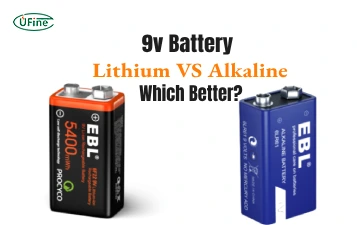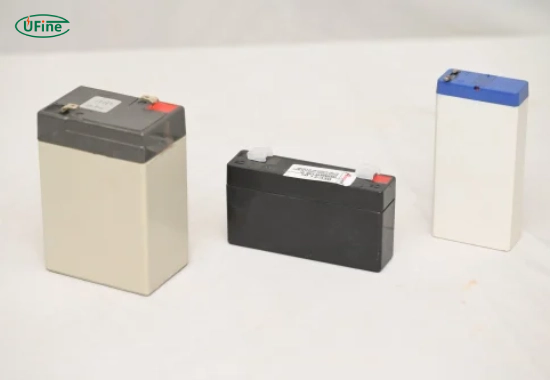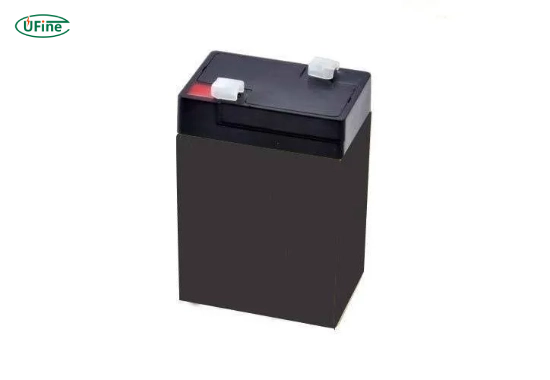
- Part 1. What is a weighing machine battery and why does it matter?
- Part 2. Types of batteries used in weighing machines
- Part 3. What makes lithium weighing machine batteries superior?
- Part 4. How lithium weighing machine batteries improve accuracy and efficiency
- Part 5. The role of battery management systems in lithium weighing machine batteries
- Part 6. How long do lithium weighing machine batteries last compared to others?
- Part 7. Is a lithium weighing machine battery worth the cost?
- Part 8. Applications of lithium batteries in commercial weighing machines
- Part 9. How to choose the right lithium battery for your weighing machine
- Part 10. Proper care and maintenance of lithium weighing machine batteries
- Part 11. FAQs about Lithium weighing machine battery
Why do lithium weighing machine batteries outperform other battery types? The answer is simple. They offer superior energy density, longer lifespan, quicker charging, and better reliability for precision devices like digital scales. In a market where accuracy and efficiency are everything, choosing the right power source is no longer optional.
In this in-depth article, we will explore why lithium batteries are the optimal choice for weighing machines. You will learn how they compare with traditional battery types, what makes them unique, and how they can improve the performance and lifespan of your weighing equipment.
Part 1. What is a weighing machine battery and why does it matter?
A weighing machine battery is a power solution designed to operate digital and electronic weighing systems. Whether it’s a compact food scale or an industrial floor scale, the battery plays a vital role in powering the device’s display, sensors, and data transmission components.
Why does the battery type matter? Because the battery determines:
- How long your scale can function without charging
- The accuracy and stability of your readings
- The total cost of ownership over time
Using a poor-quality or mismatched battery can lead to frequent recharges, inaccurate results, and early device failure.
Part 2. Types of batteries used in weighing machines
Several battery types are used in weighing machines, each with its own advantages and drawbacks:
- Alkaline batteries
- Non-rechargeable
- Suitable for light-duty or low-usage scales
- Short lifespan and higher cost over time
- Nickel-metal hydride (NiMH) batteries
- Rechargeable
- Moderate capacity and lifespan
- Prone to self-discharge
- Lead-acid batteries
- Rechargeable and widely available
- Heavy and low energy density
- Require regular maintenance
- Lithium-ion batteries
- Rechargeable with high efficiency
- Lightweight and compact
- Long-lasting with smart energy management
Among all these options, lithium weighing machine batteries offer the best overall performance, especially in professional or industrial environments.
Part 3. What makes lithium weighing machine batteries superior?
To understand why lithium batteries outperform other types, we need to look at real, measurable data. Below is a comparison based on technical specifications and real-world usage:
| Feature | Lithium-ion Battery | Lead-acid Battery | NiMH Battery |
|---|---|---|---|
| Energy Density (Wh/kg) | 150 to 200 | 30 to 50 | 60 to 120 |
| Weight (for same capacity) | Light | Very Heavy | Moderate |
| Charging Time | 1 to 3 hours | 8 to 12 hours | 4 to 6 hours |
| Cycle Life | 2000+ charge cycles | 300 to 500 cycles | 500 to 1000 cycles |
| Self-Discharge Rate (monthly) | Less than 3 percent | 5 to 15 percent | 20 to 30 percent |
| Maintenance Required | No | Yes | No |
| Operating Temperature Range | -20°C to 60°C | 0°C to 40°C | 0°C to 45°C |
Industry reports, lab tests, and manufacturer data consistently show that lithium-ion batteries offer 3 to 5 times longer lifespan and up to 70 percent higher energy efficiency than lead-acid or NiMH batteries.
This means fewer replacements, lower operating costs, and more reliable weighing performance in critical applications like industrial packaging, food processing, and laboratory measurements.
Part 4. How lithium weighing machine batteries improve accuracy and efficiency
In weighing machines, precision and consistency are essential. A battery that delivers clean, stable voltage ensures:
- Accurate weight readings
- No fluctuations or reboots during long usage
- Smooth data transmission to connected devices
Lithium batteries help prevent power dips and voltage drops that can compromise sensitive measurements. This is especially important in calibrated or certified weighing systems, where even minor fluctuations can lead to compliance issues or customer complaints.
Part 5. The role of battery management systems in lithium weighing machine batteries
Modern lithium weighing machine batteries feature built-in Battery Management Systems (BMS) that provide:
- Overcharge and discharge protection
- Temperature control
- Short-circuit prevention
- Real-time monitoring
These smart systems extend the battery’s life and make lithium options far safer than older battery technologies. In regulated environments such as food safety, pharmaceuticals, or customs weighing, this reliability is crucial.
Part 6. How long do lithium weighing machine batteries last compared to others?
One of the biggest advantages of lithium batteries is their long operational life. On average:
- Lithium-ion battery: 2000 to 3000 full charge cycles
- Lead-acid battery: 300 to 500 charge cycles
- NiMH battery: 500 to 1000 charge cycles
In real-world terms, a lithium battery can last up to 10 years with regular use, whereas a lead-acid battery may need replacement every 1 to 2 years. This saves businesses significant time and money over the life of the equipment.
Part 7. Is a lithium weighing machine battery worth the cost?
Although the initial cost of lithium batteries is higher, the total cost of ownership is much lower. Here is a simplified cost comparison:
| Battery Type | Initial Cost | Lifespan (Years) | Replacement Frequency (Over 10 Years) | Total Cost over 10 Years |
|---|---|---|---|---|
| Lithium-ion | $100 | 8 to 10 | 1 | $100 |
| Lead-acid | $40 | 1 to 2 | 5 to 10 | $200 to $400 |
| NiMH | $60 | 2 to 4 | 3 to 5 | $180 to $300 |
Lithium batteries also reduce downtime, prevent equipment damage, and require zero maintenance, which adds even more value.
Part 8. Applications of lithium batteries in commercial weighing machines
Lithium batteries are now widely used in:
- Retail POS scales: Supermarkets, delis, checkout counters
- Industrial platform scales: Warehouses, shipping centers, production lines
- Portable handheld scales: Courier services, field inspections
- Precision lab balances: Research labs, pharmacies, chemical analysis
- Medical weighing equipment: Hospitals, clinics, elderly care facilities
Each of these applications benefits from the compact size, reliability, and efficiency of lithium battery technology.
Part 9. How to choose the right lithium battery for your weighing machine
When selecting a lithium weighing machine battery, consider the following factors:
- Capacity and voltage
- Ensure the battery matches your machine’s required voltage, typically 3.7V, 7.4V, or 12V, and capacity (measured in mAh or Wh) for optimal performance.
- Size and fit
- Select a battery that physically fits your device without requiring any modifications. Most weighing machines have a dedicated battery compartment.
- Cycle life
- Look for batteries rated for at least 2000 cycles to get long-term value.
- Safety certifications
- Make sure the battery complies with CE, UL, or RoHS standards for safety and environmental compliance.
- Manufacturer reputation
- Always purchase from trusted suppliers that offer warranties, technical support, and quality assurance.
Part 10. Proper care and maintenance of lithium weighing machine batteries
To maximize the performance and lifespan of your lithium battery:
- Avoid full discharges: Keep charge levels between 20 percent and 80 percent
- Use the correct charger: Match voltage and amperage specifications
- Store at room temperature: Avoid extreme heat or cold
- Charge regularly: Do not leave batteries unused for long periods
- Clean contacts: Keep terminals free from dust and moisture
Following these tips will help you maximize the value of your lithium battery investment.
Part 11. FAQs about Lithium weighing machine battery
How do I know if my weighing machine is compatible with a lithium battery?
Check your device’s voltage and battery size specifications in the user manual. Most modern weighing machines support lithium batteries, but older models may require a voltage regulator or adapter. Look for compatibility markings or consult the manufacturer before replacing the battery.
What is the best lithium battery for portable weighing machines?
For portable and digital weighing machines, a 7.4V 2200mAh lithium-ion battery is one of the most commonly used options. It offers a good balance of size, weight, and runtime. It is also widely available and supported by many commercial weighing systems.
Can lithium weighing machine batteries be charged with solar power?
Yes, many lithium batteries are compatible with solar charging systems, especially in remote or off-grid environments. You will need a solar charge controller designed for lithium batteries to manage voltage and prevent overcharging.
How often should I replace my lithium battery in industrial weighing equipment?
With proper care, lithium batteries can last up to 10 years in industrial equipment. However, it is wise to monitor performance after the third year and consider replacement if you notice reduced capacity or longer charging times.
What are the signs that my lithium weighing machine battery needs replacement?
Common signs include:
- The battery drains faster than usual
- The machine powers off unexpectedly
- The battery takes too long to charge
- You notice swelling or physical damage
Replacing the battery early can prevent downtime and ensure accurate weight readings.
Related Tags:
More Articles

9v Lithium or Alkaline Battery: Which One’s More Reliable?
9v lithium vs alkaline battery: Which one packs more power? Learn the key differences and choose the right battery for your needs now.
What are Watts and Watt Hours in Battery?
Understand watt vs watt-hour in batteries, how to calculate battery watt hours, and what Wh means for car batteries, devices, and energy storage.
A Complete Guide to the Best Batteries for Flashlights
Compare the best batteries for flashlights, including AA, AAA, 18650, 21700, CR123A. See which battery offers the best brightness, runtime, and reliability.
How Long Do Rechargeable AA Batteries Last?
How long do rechargeable AA batteries last? Compare NiMH and lithium AA lifespan, recharge cycles, key factors, and performance vs alkaline batteries.
How Much Current Can a 9V Battery Really Supply?
Discover how many amps a 9V battery can supply, its actual current output, discharge rate, and capacity for alkaline, lithium, and rechargeable 9V batteries.




